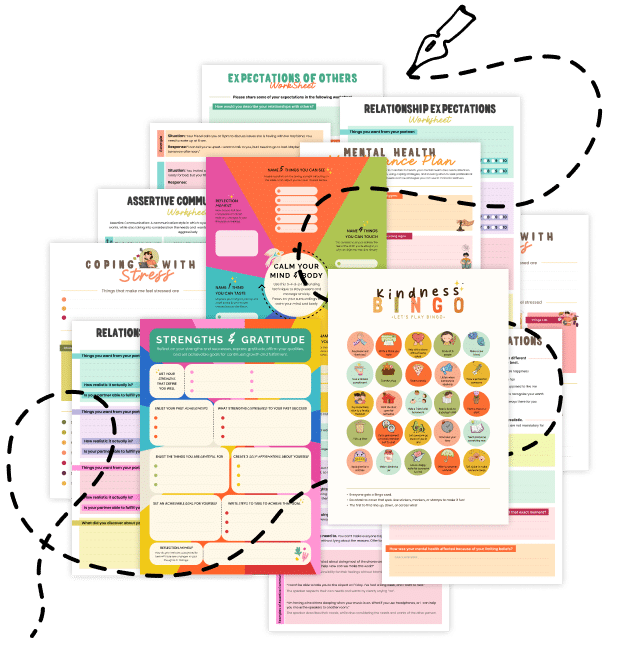20 Things You Should Know About Adaptive Confidence
Learn about Adaptive Confidence—a balanced, realistic sense of self-assurance that fuels growth and resilience. Discover 20 key insights and practical tips to cultivate confidence that adapts to life’s challenges.
1. What Is Adaptive Confidence?
It is the ability to maintain a realistic sense of self-assurance that adjusts according to context. It’s about knowing your strengths and limitations while remaining open to growth and change.
2. Balancing Self-Efficacy and Humility
It blends high self-efficacy with humility. It means believing in your abilities without overestimating them and recognizing when to seek help or improve.
3. The Role of Accurate Self-Assessment
At its core, it depends on accurate self-assessment. Knowing what you can and cannot do allows you to take on challenges that stretch you without setting yourself up for failure.
4. It’s Not About Overconfidence
Unlike overconfidence—which can lead to reckless decisions—it is measured. It encourages you to celebrate successes while learning from setbacks.
5. Building Resilience Through Realism
When you trust your abilities realistically, you’re better equipped to handle adversity. Adaptive confidence promotes resilience by preparing you for obstacles and teaching you to bounce back.
6. Continuous Learning and Improvement
It is dynamic. It grows as you learn from experiences and adjust your strategies. This mindset helps you embrace challenges as opportunities to improve.
7. Feedback Is Key for Adaptive Confidence
Regular feedback—whether from self-reflection, mentors, or peers—helps recalibrate your confidence. Honest assessments allow you to adjust your self-view, making your confidence more adaptive over time.
8. The Power of Incremental Success
Small, consistent wins reinforce adaptive confidence. By setting and achieving incremental goals, you build a realistic sense of progress that motivates you to tackle bigger challenges.
9. Embracing a Growth Mindset
Adaptive confidence is rooted in a growth mindset: the belief that abilities can be developed through effort. This perspective encourages ongoing self-improvement rather than fixed judgments of talent.
10. Managing Setbacks Constructively
When you experience setbacks, adaptive confidence helps you view them as learning opportunities rather than definitive failures. This balanced perspective fuels perseverance.
11. The Role of Emotional Regulation in Adaptive Confidence
Emotional regulation supports it by preventing negative emotions from skewing your self-assessment. Techniques like mindfulness can help you remain calm and focused.
12. Real-World Application in Decision Making
In decision-making, this means carefully weighing risks and benefits. It allows you to trust your judgments without ignoring potential pitfalls.
13. Adaptive Confidence at Work
Professionals with this skill are more likely to take initiative, accept constructive criticism, and innovate. They know when to push forward and when to pivot based on real-time feedback.
14. The Impact on Relationships
In personal relationships, adaptive confidence fosters healthy communication. It allows you to assert your needs and boundaries while remaining open to compromise and growth.
15. Reducing Impostor Syndrome
By developing a realistic view of your abilities, you can combat impostor syndrome—the persistent feeling of inadequacy. Adaptive confidence grounds you in evidence of your accomplishments.
16. Techniques to Cultivate Adaptive Confidence
- Journaling: Record your achievements, challenges, and lessons learned.
- Self-Reflection: Regularly assess your strengths and areas for growth.
- Mentorship: Seek feedback from trusted advisors who offer balanced insights.
17. Balancing Confidence and Caution
It teaches you to be confident yet cautious. It encourages informed risk-taking by acknowledging that while you are capable, you’re not infallible.
18. Avoiding the Pitfalls of Comparisons
Focus on your personal growth rather than comparing yourself to others. Adaptive confidence is individualized—what matters is progress relative to your own starting point.
19. Flexibility in the Face of Change
Life is unpredictable. Adaptive confidence means being flexible enough to adjust your goals and strategies as circumstances evolve, ensuring that your self-assurance remains grounded in reality.
20. Related Topics to Explore for Adaptive Confidence
- Self-Talk Restructuring: How positive internal dialogue can reinforce a balanced self-view.
- Grit Priming: Techniques to foster perseverance alongside realistic confidence.
- Metacognitive Monitoring: Tracking your own learning and performance to adjust confidence levels.
- Growth Mindset: Embracing the belief that abilities can improve with effort and practice.
Quick Tips to Boost Adaptive Confidence
- Set Realistic Goals: Break tasks into manageable steps and celebrate small wins.
- Seek Honest Feedback: Use constructive criticism to adjust and improve your self-assessment.
- Practice Self-Reflection: Regularly journal your experiences and insights to track progress.
- Adopt a Growth Mindset: View challenges as opportunities for learning rather than threats to your self-worth.
- Balance Confidence with Caution: Recognize your strengths while being mindful of areas that need development.
Adaptive Confidence is about nurturing a balanced, flexible belief in your abilities. By continuously calibrating your self-assessment, embracing a growth mindset, and learning from both successes and setbacks, you can develop a robust sense of self-assurance that adapts to life’s challenges. This dynamic confidence empowers you to take calculated risks, pursue meaningful goals, and maintain resilience in the face of adversity.
Share this article with anyone looking to build a healthier self-confidence.

